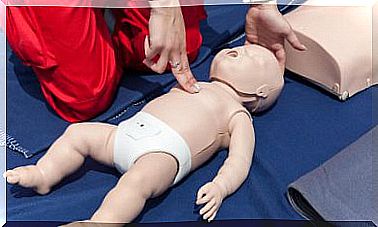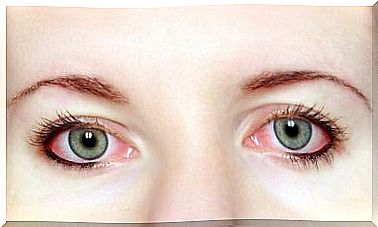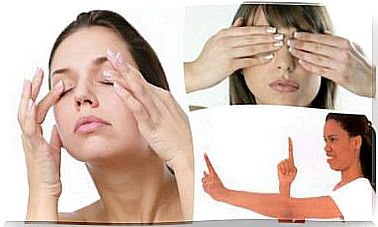Changes During Menopause – How To Alleviate Them

“I feel nervous, depressed and irritable” is one of the common phrases women say as they reach the menopause. The changes in menopause that women often experience are so diverse that they sometimes don’t know what to associate with them.
During this period, a woman’s body may experience a number of hormonal imbalances. Therefore, the ongoing physiological changes are particularly noticeable. However, both the behavior of a woman and her mental state also undergo a significant change in this difficult period.
Changes in the perimenopausal and menopausal periods
Menopause occurs on average one year after the last menstrual period. Before that, a woman goes through a period of perimenopause or menopause. This is where your body begins to produce less estrogen and progesterone, reducing your ability to become pregnant. This situation occurs around the age of 50.
It is during this period, when changes begin to occur before the actual menopause, that the characteristic hot flashes and night sweats appear.
Women also frequently find it difficult to fall asleep, increased susceptibility to urinary tract infections, urinary incontinence and increased fat accumulation in the waist area.

Feelings of loneliness, mood swings, bouts of sadness and anger arise during this period without a reason and without explanation. In some cases, it also causes low self-esteem.
These emotional changes add to the physical changes that are faced by women at this stage. Many ladies also complain of problems with memory and concentration.
If a woman is melancholic, irritable or depressed, it can be expected that during this period they will worsen especially. However, other ladies will not experience such major changes during the menopause, and for some women, they will even be almost imperceptible.
Relationship between hormones and their effects
It is this relationship that explains the emergence of feelings of irritability, depression, sadness, stress or anxiety. This type of sensation affects up to 70% of women who go through the menopause, and can last anywhere from six months to two years.
Some useful tips to ease the changes in menopause
Sun filters and daily hygiene
First, there are several options to deal with the effects on the skin of reduced estrogen secretion during the menopause. First of all, it is necessary to use a cream with a filter that protects against UV rays, suitable for the type of skin.

Daily skin hygiene is also essential, as is the use of products to restore the skin’s barrier function. This will minimize the appearance of wrinkles, the effect of drying and sagging skin or even senile xerosis resembling atopic dermatitis.
Skin aging is also related to genetic and environmental factors. Therefore, it is advisable to properly adjust the diet during this period. In addition, to better manage this stage, women should avoid exposing their skin to pollution, sunlight, and tobacco.
What Changes During Menopause Occur In A Woman’s Body?
During this period, adipose tissue is usually redistributed. Fat from the hips moves towards the waist and some women may gain weight and others may lose weight. A balanced diet rich in fruits, vegetables, legumes and vegetables, as well as daily exercise, help to combat these changes.
Another problem that usually occurs at this stage is osteoporosis. This pathology increases the fragility of the bones, especially the hips, wrists, and the spine of the spine, which can be fractured or crushed. Therefore, it is recommended that during this period you take special care of calcium intake in the form of dairy products. Women should also walk for at least 20 minutes a day.
More control and less salt
Prophylaxis in the perimenopausal period is particularly important and should not be underestimated. Neglect in this area can increase cardiovascular risk factors and lead to high blood pressure.
Cholesterol levels can also rise, and diabetes sometimes occurs. You are also more likely to have a heart attack and stroke.

Consequently, women are advised to reduce their consumption of table salt, alcoholic beverages, fried foods, unhealthy snacks, and junk food. Adequate water consumption, however, is absolutely essential. It is also strongly recommended that you stop smoking and have your blood pressure, cholesterol, and blood glucose levels checked regularly.
Seek professional help
For any of these disorders, you should seek the help of a good professional. Your gynecologist will help soothe the lesions and heal some abnormalities if you experience menopause
Changes during menopause are just the next stage in life
The main recommendation is always to accept changes in menopause as a natural stage in a woman’s life. Daily moderate exercise and a varied diet rich in vegetables, fruits and legumes are also recommended. Such a healthy lifestyle, along with the elimination of unhealthy habits, will help alleviate the effects of menopause.

When it comes to mental changes, especially during this period, you need to surround yourself with positive people, spend time with loved ones and socialize. It is the best way to maintain a positive outlook on life and to strengthen your self-esteem and confidence.
If you can view menopause as the next step in your life and accept the changes your body and mind are going through, you can still enjoy life to the fullest. It’s just one more part of life.









